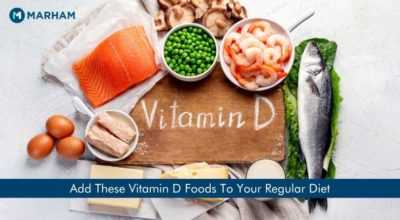Vitamin D, also known as the “sunshine vitamin,” is an essential nutrient, but many people don’t get enough of it. It is essential that you include vitamin D in your diet because its deficiency may lead to serious effects on your health. Luckily, there are plenty of vitamin d-rich foods that pack a healthy dose of vitamin D into every bite.
Key Points:
- Vitamin D is an essential nutrient that helps your body absorb calcium and phosphorus to maintain healthy bones and teeth.
- Some of the best sources of vitamin D are cod liver oil, salmon, tuna, egg whites, mushrooms etc.
- In some cases, vitamin D supplements are often the best option for safely meeting your vitamin D needs.
Vitamin D has long been known as the “sunshine vitamin” and is linked to maintaining healthy bones. But recently, it has also been shown to support strong, healthy muscles and promote a healthy immune system.
The foods below are the best for you to introduce into your diet.
1. Cod Liver Oil:
Cod liver oil is an essential supplement for your health. It has high levels of omega-3 fatty acids and vitamin A.
The factor that sets cod liver oil apart from other fish oils is its high vitamin D concentration. Cod liver oil works against rickets, a condition caused by a lack of vitamin D.
2. Salmon Fish:
Popular fatty fish like salmon is an excellent source of vitamin D. Salmon has approximately 400 IU of vitamin D3. Salmon’s vitamin D content varies based on whether it’s wild or farmed.
Although farmed and wild salmon are both excellent sources of vitamin D, wild salmon typically contains a higher concentration. Fish is a great source of vitamin D3, especially fatty fish such as salmon, mackerel, and bluefish.
3. Sardines and Herring:
Herring is one of several fish that are liked all around the world; it is commonly pickled or smoked.
One serving of canned sardines contains approximately 380 IU or 94 percent of the recommended daily intake.
Sardines and herring are a great way to get more vitamin D. They are also low in fat, have no cholesterol, and are rich in omega-3 fatty acids – all of which help maintain heart health.
Sardines and herring contain about 30 percent less mercury than fresh tuna.
4. Vitamin D-fortified Orange Juice:
Vitamin D-fortified orange juice provides a healthy way to add vitamin D to your diet. It’s a convenient, delicious, and nutritious way to give your body the nutrients it needs daily.
One cup of fortified orange juice can increase your daily intake of vitamin D by 99.6 IU.
Read Also: Try these 2 Fruits Rich in Vitamin D to stay healthy
5. Canned Tuna:
Many people like canned tuna because of its taste and easy storage options. Typically, it is less costly than buying fresh fish. Each serving of tuna in a can has 269 IU of vitamin D.
6. Dairy and Non-Dairy Fortified Products:
Soy milk, almond milk, and oat milk are examples of non-dairy substitutes fortified with vitamin D, as are many dairy products like milk and yogurt. A cup of fortified milk typically contains 3mg (120 IU) of vitamin D, whereas non-dairy alternatives range from 2.5 to 3.6mg.
7. Fortified Cereals with Vitamin D:
There are few dietary sources of vitamin D. You can increase your consumption by eating morning cereals fortified with vitamins and other necessary vitamins and minerals. One cup of fortified cereal has 2 mg (80 IU) of vitamin D, 10% of the required daily value.
It would be best to read the label when purchasing grain because it may be enriched with vitamins and minerals.
8. Mushrooms:
If you are looking for fresh, nutritious food to add to your diet, you should choose mushrooms. Mushrooms naturally produce vitamin D when exposed to sunlight, making them a great alternative to foods that don’t supply much of this essential nutrient.
Did You Know: A common edible fungus, the edible mushroom naturally produces vitamin D when exposed to sunlight.
Vitamin D helps to strengthen bones, regulate heart rate and blood pressure, ward off depression, and enhance the immune system. The best way to ensure you get all the vitamin D you need every day is a balanced diet that includes natural sources like mushrooms.
9. Egg Whites:
Another excellent source of vitamins is whole eggs, a great healthy food. An egg’s protein content is primarily in the white, while its fat, vitamins, and minerals are primarily in the yolk. Vitamin D content in the yolk of a big egg is 37 IU or 5% of the DV.
Also Read: Vitamin D3 Rich Foods To Add To Your Diet
Conclusion:
Although our bodies can produce vitamin D from UV rays from the sun, there are better ways to meet your daily requirements of vitamin D. Food sources or vitamin D supplements are often the best options to consistently and safely fulfill your vitamin D needs. It may be difficult, but not impossible, to get enough vitamin D from food alone—some of the best food sources are mentioned in this article.
Consult a nutritionist if you have any questions about the foods containing vitamin D. They can also assist you in determining whether you need vitamin D.
FAQs:
1. What happens if the value of vitamin D exceeds the normal range?
If the quantity of vitamin D in the body exceeds the normal range, it can lead to vitamin D toxicity, known as hypervitaminosis. The symptoms include nausea, vomiting, weakness, and frequent urination.
2. Does vitamin D hydrate skin?
Research shows that low levels of vitamin D can increase your chances of dry skin. Therefore, moderate consumption of vitamin D supplements can help increase skin hydration.

